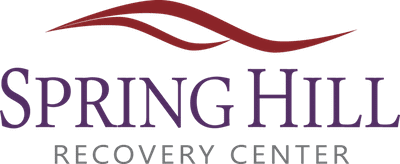Binge Drinking In New England

The Centers for Disease Control and Prevention (CDC) defines binge drinking as having four or more drinks on one occasion for females and five or more drinks on one occasion for males. As a form of alcohol abuse, it poses serious health risks. Here’s how it affects people in New England.
Binge Drinking In New England
In October 2021, the CDC released data on binge drinking rates across the United States. The data only involved individuals who binge drank in the past month. Here’s what it said about New England states:
Connecticut
Connecticut residents binge drank at a median of 1.6 times in the past month (7.8 times among the state’s top 10% of binge drinkers). When binge drinking, they drank a median of 5.2 drinks (9.3 drinks among the top 10% of binge drinkers).
During the COVID-19 pandemic, many Connecticuters binge drank more often to cope with the stress. Between March and October 2020, binge drinking among Connecticut women increased 41%.
Massachusetts
Massachusetts residents binge drank at a median of 1.5 times in the past month (7 times among the top 10% of binge drinkers). They drank a median of 5.4 drinks (11.2 drinks among the top 10% of binge drinkers).
Much of the binge drinking that occurs in Massachusetts is also underage drinking. According to Boston University School of Public Health, about 63% of the state’s underage drinkers (aged 12 to 20) binge drank in the past month.
New Hampshire
New Hampshire residents binge drank at a median of 1.5 times in the past month (9.9 times among the top 10% of binge drinkers). They drank a median of 5.5 drinks (11.2 drinks among the top 10% of binge drinkers).
Like Massachusetts, New Hampshire has a high incidence of underage binge drinking. According to the Substance Abuse and Mental Health Services Administration (SAMHSA), about 21% of New Hampshire teens binge drink, compared to just 15% in New York.
Vermont
Vermont residents binge drank at a median of 1.9 times in the past month (9.5 times among the top 10% of binge drinkers). They drank a median of 5.5 drinks (10.6 drinks among the top 10% of binge drinkers).
Young adults have the highest rates of binge drinking in the state. In a 2020 survey, about 42% of Vermonters ages 18 to 25 binge drank in the past month, compared to 22% of Vermonters age 26 and older.
Maine
Maine residents binge drank at a median of 1.8 times in the past month (9.3 times among the top 10% of binge drinkers). They drank a median of 5.4 drinks (11.2 drinks among the top 10% of binge drinkers).
According to 2021 data from the Department of Health and Human Services, about 32% of Mainers ages 18 to 25 binge drank in the past 30 days.
Rhode Island
Rhode Island residents binge drank at a median of 1.6 times in the past month (8.5 times among the top 10% of binge drinkers). They drank a median of 5.4 drinks (9.7 drinks among the top 10% of binge drinkers).
As with other New England states, most Rhode Island binge drinkers are young adults. About 30% of Rhode Islanders ages 18 to 34 binge drank in the past month.
Dangers Of Binge Drinking
Binge drinking has both short-term and long-term risks.
The most common short-term risks include:
- alcohol poisoning (also called alcohol overdose)
- accidents, such as motor vehicle crashes, falls, and drownings
- risky sexual behavior (such as unprotected sex), which can lead to sexually transmitted diseases and unwanted pregnancy
- violent behavior, such as homicide, suicide, and sexual assault
- miscarriage, stillbirth, or fetal alcohol spectrum disorders (FASDs) if you binge drink while pregnant
The most common long-term risks include:
- liver disease
- high blood pressure, heart disease, and stroke
- certain cancers, including throat cancer, breast cancer, and colon cancer
- mental health problems, such as anxiety and depression
- memory problems, such as dementia
- damaged relationships
- job loss
Also, people who binge drink on a regular basis face a high risk of alcohol use disorder. This disease makes you feel unable to control your excessive alcohol consumption. It can also cause tolerance and physical dependence.
To learn about treatment options for alcohol use disorder, please contact a Spring Hill Recovery Center specialist. Our residential substance abuse treatment programs offer behavioral therapy, holistic activities, and multiple forms of personalized, evidence-based care.
- Centers for Disease Control and Prevention — Drinking too much alcohol can harm your health https://www.cdc.gov/alcohol/fact-sheets/alcohol-use.htm
- Boston University — Alcohol Causes 1 in 20 Deaths in Massachusetts https://www.bu.edu/sph/news/articles/2022/alcohol-causes-1-in-20-deaths-in-massachusetts/
- Hartford HealthCare — Binge Drinking Up 41 Percent Among Women Since COVID-19 https://thocc.org/about/news-press/news-detail?articleId=29111&publicid=395
- MassLive — Which New England state has the most binge drinkers? See the data here https://www.masslive.com/news/2022/02/which-new-england-state-has-the-most-binge-drinkers-see-the-data-here.html
- State of Rhode Island Department of Health — Alcohol Use Among Adults in Rhode Island, 2016-2020 https://health.ri.gov/publications/reports/2016-2020AlcoholUse.pdf
- Substance Abuse and Mental Health Services Administration — Underage Binge Drinking Varies Within And Across States https://www.samhsa.gov/data/sites/default/files/report_3185/ShortReport-3185.html
- Vermont Department of Health — Alcohol Use In Vermont https://www.healthvermont.gov/alcohol-drugs/alcohol-drugs/alcohol#:~:text=Binge%20drinking%20is%20defined%20as,drinks%20per%20week%20for%20men
- WGME — Alcohol misuse in Maine up during pandemic https://wgme.com/news/local/alcohol-abuse-in-maine-up-during-pandemic

